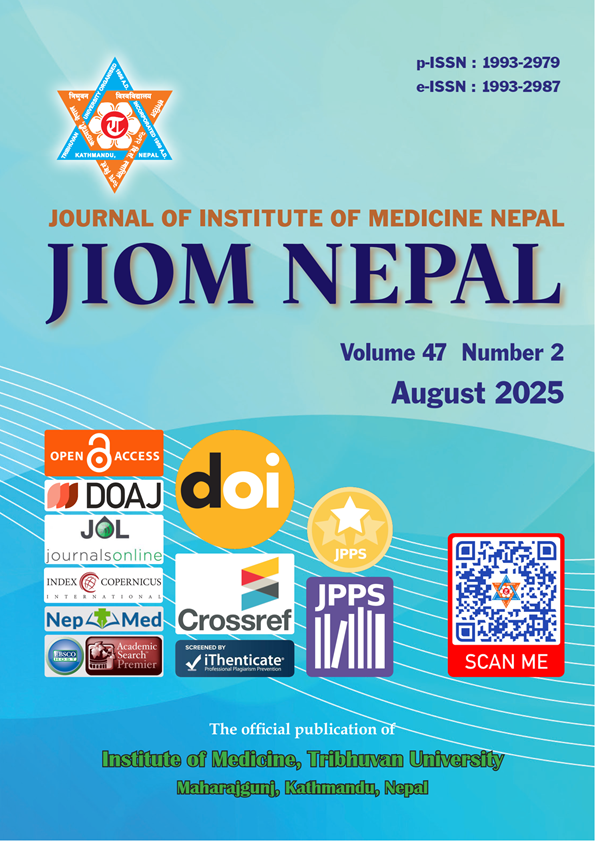Physical Status and Psychosocial Wellbeing of Child Domestic Workers in Selected Wards of Pokhara
DOI:
https://doi.org/10.59779/jiomnepal.1369Keywords:
BMI, child domestic workers, child labor, nutritional status, psychosocial problemsAbstract
Introduction:
Child domestic workers (CDWs) face unique physical and psychosocial challenges; however, research on these issues is limited. This study assesses the nutritional status, physical health, and psychosocial problems among CDWs in selected wards of Pokhara.
Methods:
A cross-sectional study was conducted among 125 CDWs using a snowball sampling. Data were collected via semi-structured interviews and physiological measurements. Descriptive statistics (frequency, percentage, mean, and standard deviation) and inferential statistics (Chi-square test) at a 5% significance level were used. Odds ratios were calculated at a 95% confidence interval. Data analysis was performed using SPSS version 16.
Results:
Among the CDWs, 50.9% reported inadequate fulfilment of basic needs; 50.4% exhibited stunted stature, 35.2% had low weight for age, and 16.8% were underweight based on BMI. Male CDWs (p = 0.001, OR = 4.929) and those obtaining less than seven hours of sleep per night (p = 0.003, OR = 5.77) demonstrated significantly greater odds of being underweight. Health problems were reported by 47.2%, while 50.9% had sustained work-related injuries. Older CDWs (p = 0.011, OR = 2.679) were significantly more likely to report health problems. Psychosocial problems were observed in 25.6% of the CDWs and were significantly associated with working over eight hours daily (p = 0.036, OR = 2.450), inadequate fulfilment of basic needs (p = 0.002, OR = 3.868), and dissatisfaction with work (p = 0.003, OR = 3.471).
Conclusions:
Poor nutrition among child domestic workers was associated with inadequate sleep and male sex; health and psychosocial problems correlated with older age, long hours, unmet needs, and dissatisfaction, warranting further longitudinal research.
Downloads
Published
Issue
Section
Categories
License
Copyright (c) 2025 Journal of Institute of Medicine Nepal

This work is licensed under a Creative Commons Attribution-NonCommercial 4.0 International License.















